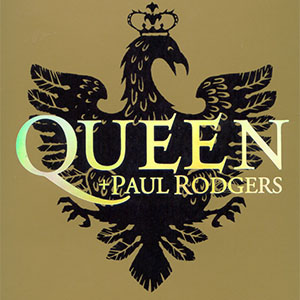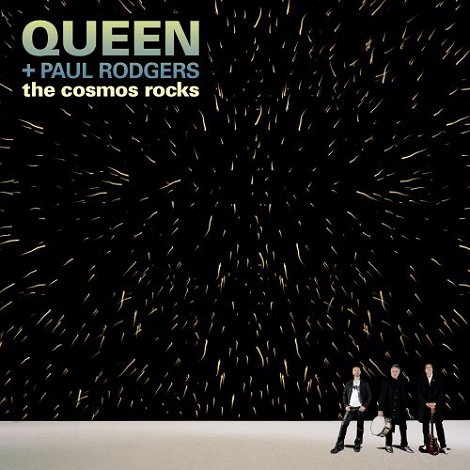03-06-2006 – Miami Herald
Want to start an argument with a classic rock fan?
Come down one way or the other on whether Queen should have reformed with Bad Company vocalist Paul Rodgers in the frontman role once occupied by the late Freddie Mercury.
Of course, many rock bands have replaced lead singers _ INXS, Van Halen, Journey, Foreigner, Fleetwood Mac, the Doors, Styx, to name some _ but few have engendered such passion after doing so.
Imagine the Rolling Stones without Mick Jagger.
Impossible.
And so it would seem with Queen sans Mercury, whose pliable voice could handle heavy metal, pop, rockabilly, vaudeville, Tin Pan Alley, opera, disco, funk and Arabian music _ all in the space of one album. Add his flamboyant image and he came to define rock showmanship.
Rodgers, by comparison, is the straight, no-frills, blues-rock belter behind such `70s testosterone staples as “Feel Like Makin’ Love,” “Can’t Get Enough” and Free’s “All Right Now.” Can you picture him in tights prancing across a stage, singing “Killer Queen?”
Some can’t.
In a feature on dead rock stars in the March issue of Blender magazine, a writer opines that the new Queen + Paul Rodgers, as the act bills itself, “diminishes Queen’s brand value” but enhances the personal reputation of Mercury, who died in 1991 of complications from AIDS. “Rodgers is unfit to wear his predecessor’s crown, metaphoric or otherwise” they write. That’s one view.
Meanwhile, when I merely suggested in a recent column _ without commenting at all on the musical merits of the new band _ that charging $200 for top seats for Friday’s U.S. opening concert date at Miami’s AmericanAirlines Arena was outrageous for a Queen concert without Freddie Mercury, my inbox sagged with missives from peeved Rodgers fans.
“My advice to you … let Freddie’s act rest in peace. Give yourself a gift and check out the greatest rock vocalist out there,” read one of the nicer ones. Most, however, suggested I commit an act of flexibility using my head and backside that doesn’t seen possible for anyone who isn’t a Cirque du Soleil performer.
Queen drummer Roger Taylor, who, along with original guitarist Brian May, are on tour with Rodgers, chuckles when he hears that anecdote.
“Two hundred dollars does sound like a lot,” Taylor, 56, says.
But beyond the potential for financial gain, Taylor’s thrilled to be on the road again.
Reviews for the European and Japan shows last year featuring Rodgers proved kind and led to the U.S. jaunt. Queen has not toured in the U.S. since 1982’s “Hot Space Tour,” so the curiosity factor is amped.
“I have to say fantastic. We’ve got one of our favorite singers from all time _ one of Freddie’s favorite singers _ and Queen WAS a four-man band and Brian and I feel vindicated in carrying on with Paul who is not trying to be a Freddie,” Taylor says in a telephone interview from his home in Gilford, England.
He has a point. Queen will forever be linked with Mercury if, for no other reason, his force of presence and for dreaming up “Bohemian Rhapsody,” but the band was never a dictatorship. Each member, including departed bassist John Deacon, who opted out of this reunion tour, wrote a Queen tune alone. “Radio Ga Ga” is one of Taylor’s compositions, for instance, and he sang lead on “I’m in Love With My Car” and others.
May, 58, wrote “We Will Rock You” and “Fat Bottomed Girls” and sang lead on “Sail Away Sweet Sister” and “’39.” The band will also perform Deacon’s No. 1 smash “Another One Bites the Dust” Friday.
“John is like a hermit and doesn’t go out,” Taylor said, “but he wrote us a nice letter that said he totally approved of what we were doing and he is still a partner in our band name and we do some of his songs.”
“Brian and I both sing quite a lot in this show. Paul is the lead singer but there were three singers in Queen.”
Still, to accommodate Rodgers’ vocal range, the band had to make some changes. “We dropped a couple keys,” Taylor said. “Freddie sang very high, as do I, and we let Paul do some of the choosing what he felt would suit him.”
Rodgers, 56, responding via e-mail, says he wasn’t intimidated by the prospect of joining the others, who all agreed the band should take on the descriptive handle, Queen + Paul Rodgers.
“I was challenged by Queen to interpret their music with my blues- and soul-infused style … So far I’ve shied away from none of the Queen material … The only question I asked myself was, `Do you want to sing these great songs with these great musicians and have them interpret my material too?’ Absolutely. And so here we are.”
“I have to say that the fans have been truly amazing,” Rodgers added. “Queen fans don’t expect me to be Freddie nor do my fans expect Brian May to be Jimmy Page or Mick Ralphs, my former guitarists. They get what we are doing and understand that it is what it is and it’s happening now.
“We have no plans beyond this U.S. and Canadian tour. I have solo projects that I’ve put on hold for the last year that I have to get back to at some point.”
The setlist, however, will likely vary from the one European fans were exposed to last year. Queen in the `70s did equally well in the United States and England. But following the No. 1 album, “The Game,” in 1980 Queen’s crown tarnished in America while remaining sparkling throughout Europe. In fact, last year Queen reportedly overtook the Beatles back home to spend more time on the U.K. album chart than any other act, notching 1,332 weeks, a whopping 25 { years.
“In the U.S., we’ll concentrate more on the earlier material,” Taylor said.
However, there has been a resurgence in Queen’s popularity here, dating back to the prominent use of “Bohemian Rhapsody” in the comedy “Wayne’s World” a decade ago and a cover version performed with relish on “American Idol” last season by pouty finalist Constantine Maroulis, who reprised his performance on a Queen tribute CD.
“For many years, Brian and I didn’t think about redoing our stuff with Queen, but we don’t have a lot more time and this is our best chance,” Taylor said. “It seemed right and fell into place, serendipity, and Paul came along and we did a TV show and … we were all on the same wavelength. We started touring Europe and it sold out and went so well and we were amazed at how young the audiences were.”
No one will ever know for sure if Mercury would have approved of Queen carrying on without him but signs suggest he might have. Mercury recorded a plethora of material in the studio while sick to bulk up the band’s catalog, including the albums “The Miracle,” “Innuendo” and the posthumously released “Made in Heaven.”
“We were very much a democratic band and his desires at the time were for us to keep working and keeping him occupied in the studio,” Taylor recalled. “He didn’t direct us. Everything was done together. That might not be people’s perception but everything was decided by the four of us.”
It still is, suggests Cynthia Michelle, Rodgers’ fiancee and the tour’s business manager. “Paul has worked hard to bring these songs to life. It’s not easy to take someone else’s song and make it your own. Freddie was a character, a personality, unique, a one-off. Paul is too, in a different vein. When you see Brian and Roger on stage they come to life and Paul is bringing that to them. It’s a nice circle of love going on.”
And now, with current bands like Britain’s The Darkness aping Queen’s heavily-layered sound (and going so far as to hire Queen’s old producer Roy Thomas Baker for its current CD “One Way Ticket to Hell … And Back”) it makes sense to have the architects of that sound perform it on tour and reap the benefits.
But will currently touted acts like The Darkness, The Killers, Franz Ferdinand and others have the sort of catalog to be able to charge the equivalent of today’s hefty $200 for tickets to see them in 30 years? Taylor isn’t sure.
“We’ll have to wait and see. Things like `Creep’ by Radiohead will be remembered,” he predicts. “A lot of rock bands sound the same … The Darkness are great fun people … and they are big Queen fans, but their new stuff sounds like `80s hair rock. It doesn’t sound like us. They do have talent. Let’s see if it’s a lasting thing.”
Clearly, Queen mattered and Taylor is grateful.
“It’s fantastic,” he said. “I love to feel that the music has become, in some way, a part of life, that it wasn’t just a flash in the pan and has some kind of longevity.”


